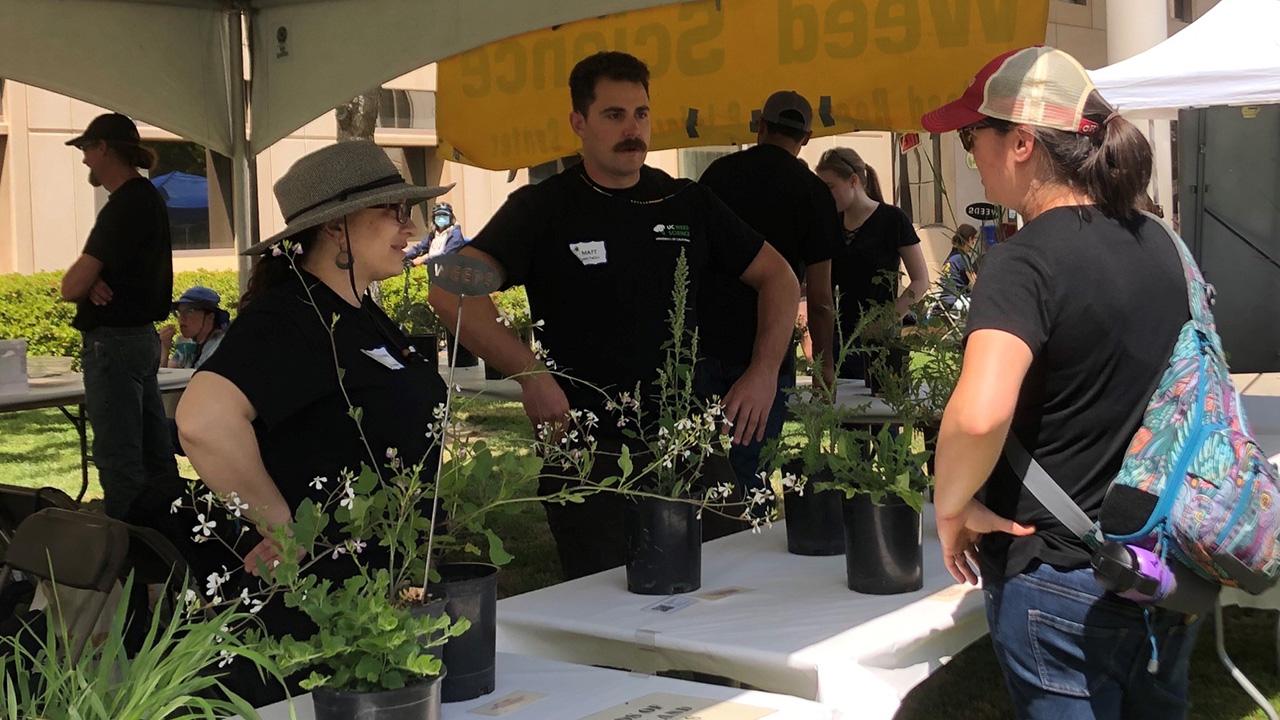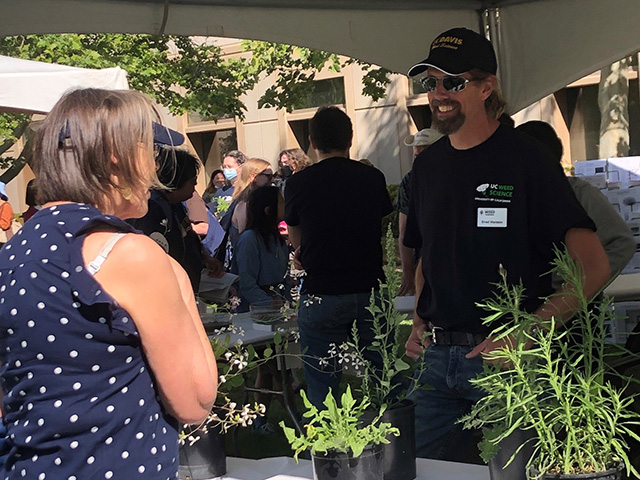
Weed doctors seek solutions for pesky plants
Hanson: “Some weeds you can only eat once”
Dandelions are pretty, but weeds nationwide cost homeowners, farmers, ranchers and land managers tens of billions of dollars each year in control measures and lost production. They also endanger fragile ecosystems and can increase threats of erosion and wildfire. At the UC Davis Department of Plant Sciences, scientists are looking for ways to control pesky plants in rice fields, orchards, rangelands, farms, natural areas ̶ and even in people’s yards. Their work aims to benefit agriculture and the preservation of our natural resources.
Our weed doctors will be available to identify weeds and give people advice during Picnic Day this year, from 10 a.m. to 2 p.m. Saturday, April 20, in the PES courtyard. Research staff have collected seasonal weeds for their “weed petting zoo” to help you identify what’s in your lawn, flower bed or horse pasture.

You can bring in your own weeds to get them identified.
People often ask for low-cost, easy and chemical-free solutions to eradicate weeds, said scientist Brad Hanson. “I usually tell them, ‘Weeds are weeds for a reason,’ and they might be more successful if they pick two of those three specifications.” In the case of stubborn perennial pests, the weed doctors can recommend an effective herbicide.
Weeds are a huge problem in our natural lands, too. “Besides affecting landscapes and agricultural fields, weeds are driving ecosystem changes and altering fire regimes in California,” said weed and restoration specialist Justin Valliere. “In many cases, ecological restoration is primarily related to managing and preventing weed invasions.”
Careful what you eat!
Also at this year's "Ask the Weed Doctor" booth will be Jens Beets, the new representative from the United States Department of Agriculture's Agricultural Research Service. Based in Albany, Calif., Beets is an expert in invasive species and pollinator health.
Information also will be available about aquatic weeds.
Visitors can take home information sheets describing pests and guides from the University of California’s Statewide Integrated Pest Management Program. Weed doctors also can point visitors to helpful books, local resources such as a UC Master Gardeners group, and online resources, Hanson added.
Faculty with the Weed Research and Information Center enjoy meeting people and hearing about their weeds. A memorable conversation, Hanson recalled, went like this: “Hey, this one shouldn’t be called a weed! If you pick it when it’s tender, you can eat it in a salad.” To that, the weed doctor responded, “You can eat any weed, but some of them you only eat once!”
Check out all the information available at the Weed Research and Information Center.
Media Resources
- Trina Kleist, UC Davis Department of Plant Sciences, tkleist@ucdavis.edu, (530) 754-6148 or (530) 601-6846
